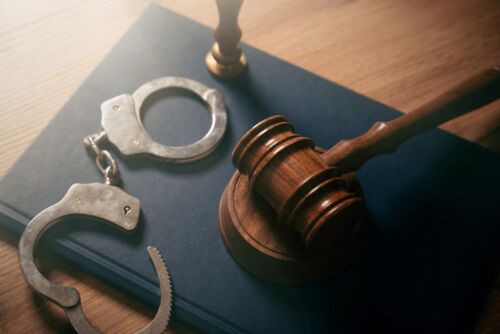



Even though a misdemeanor conviction does not carry the same long-term consequences as being convicted of a felony, having a criminal record can still affect many areas of your life. A misdemeanor conviction will appear on a background check, and employers, landlords, schools, and professional licensing boards might use a conviction to make decisions that can affect your future. Employers might be reluctant to hire someone with a criminal conviction, and colleges and universities may consider a misdemeanor conviction when making admissions decisions.
To minimize the long-term consequences associated with being convicted of a crime, the Connecticut legislature passed a “Clean Slate Law” that limits an employer’s ability to discover, consider, or make decisions based on an applicant’s criminal history.
While Connecticut law has long barred employers from requesting information about, making hiring decisions, or discriminating against or discharging employees based on a criminal record that has been erased, the Clean Slate Law provides expanded protections for individuals whose criminal records have been erased. The law also implemented a process by which certain criminal convictions are automatically erased by operation of law rather than on an individual’s request.
Connecticut’s Clean Slate Law went into effect on January 1, 2023. Under the law, certain classified and unclassified misdemeanors will be automatically erased from an individual’s criminal record seven years from the date on which the court entered the individual’s most recent conviction. The convictions are erased automatically, provided the individual has not committed any new crimes and has completed the sentences for any crimes for which they have been convicted.
Convictions for family violence crimes as well as violent and non-violent sexual offenses are not eligible for erasure.
For individuals convicted of misdemeanor crimes committed before their 18th birthday, their criminal record will be automatically erased if the offense occurred on or after January 1, 2000, and before July 1, 2012. Eligible offenses that occurred before January 1, 2000, are subject to erasure by individual petition.
As a result of Connecticut’s Clean Slate Law, employers will have limited access to an individual’s criminal history. Because employers are prohibited from discriminating against an individual based on their criminal history, employers are even less likely to discriminate against an employee or job applicant based on their criminal history.
If an individual commits another criminal offense, the clock resets and they must remain conviction-free for seven years from the date on which the court entered the individual’s most recent conviction.
Certain offenses are not subject to Connecticut’s Clean Slate Law. However, depending on the nature of the offenses, an individual may be eligible to seek a criminal record expungement, also known as a pardon. If the request for expungement is successful, the individual’s criminal conviction will be erased.
Individuals seeking criminal record expungement have two choices: an absolute pardon, or a provisional pardon.
Individuals whose criminal convictions are not subject to the Clean Slate Law may still be able to seek an absolute or provisional pardon. In Connecticut — unlike many other states — any criminal offense can be expunged, as long as the individual has waited enough time and does not reoffend.
The Lebedevitch Law Firm, LLC, represents people in Connecticut who were charged with crimes as well as individuals seeking to clear their criminal records. We work tirelessly to obtain the best possible outcomes for our clients.
The Lebedevitch Law Firm is based in Fairfield, Connecticut, and represents people who have been charged with crimes in Stamford, Greenwich, New Canaan, Norwalk, Darien, Rowayton, Fairfield, Trumbull, Westport, Wilton, Weston, Danbury, New Haven, Bethany, Woodbridge, Milford, Stratford, Bridgeport, and throughout the State of Connecticut.
Contact The Lebedevitch Law Firm today to schedule an appointment to discuss your situation and how we can assist you.
© 2025 The Lebedevitch Law Firm, LLC
| View Our Disclaimer | Privacy Policy
Law Firm Website Design by The Modern Firm